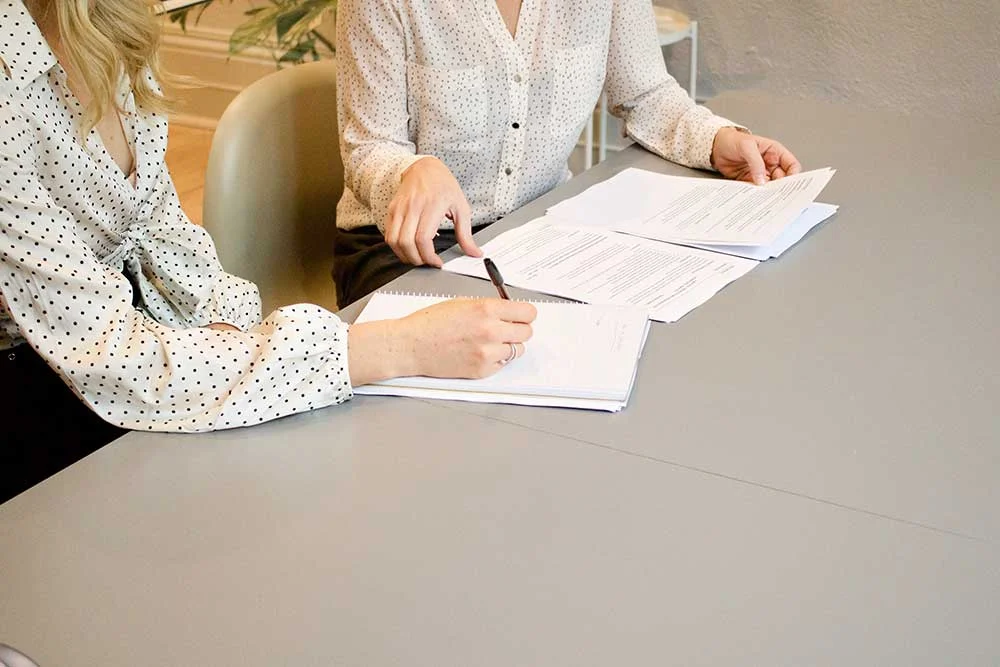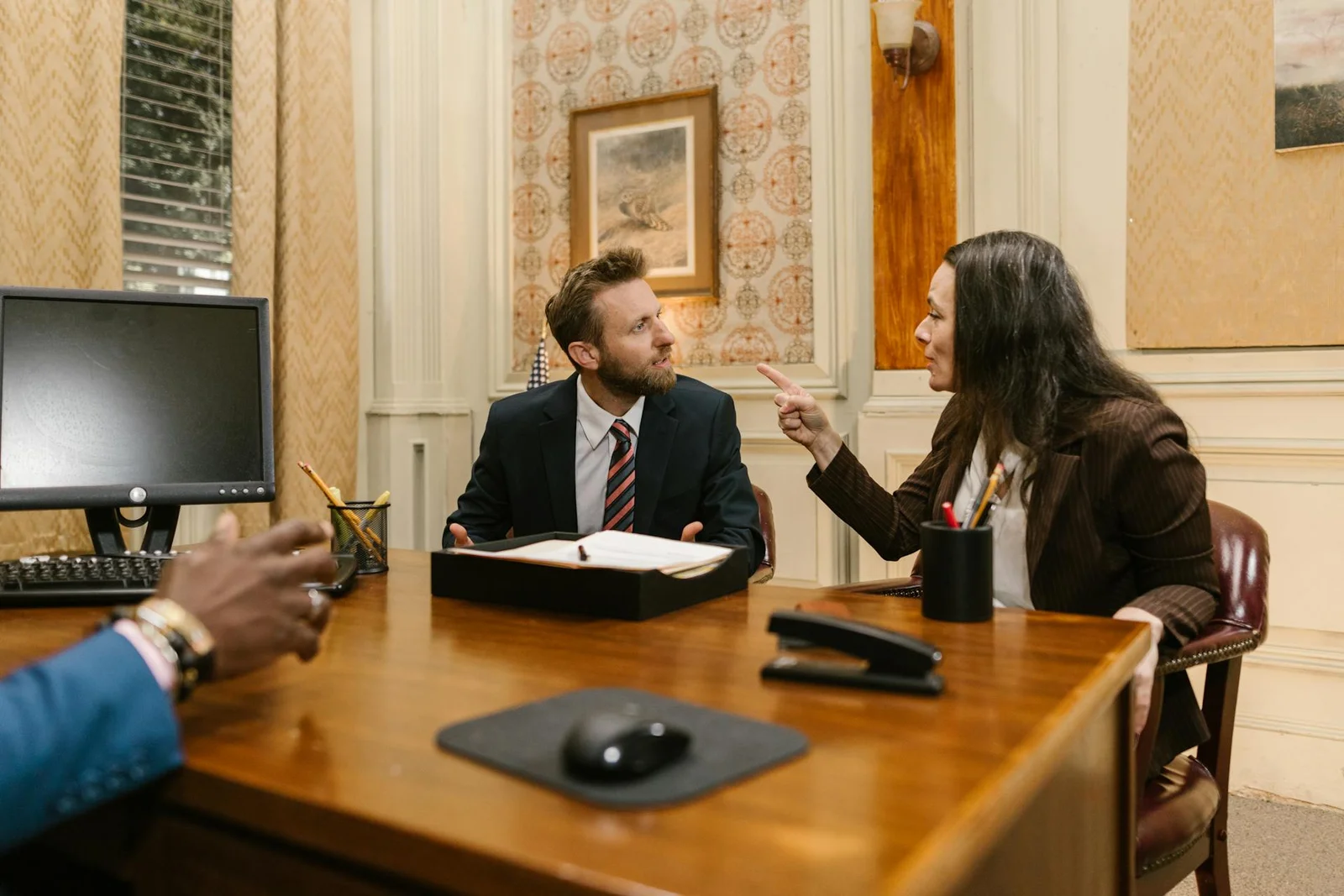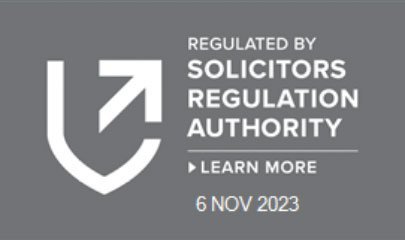Alternatives to Court

Family law issues can be very emotional and difficult to resolve on your own but involving the courts, which are both public and adversarial, can make a difficult situation even worse.
At Allard Bailey Family Law, we help people take control of their lives and achieve fair outcomes whilst avoiding unnecessary conflict and costs. We will help you to resolve disputes through mutual agreement wherever possible and consider the alternatives to litigation that are usually quicker and less stressful than Court.
This guide will help you understand the alternatives to Court, known as Alternative Dispute Resolution or ADR. A solicitor can help you to assess your options and decide which process, or combination of processes, would be most suitable for your situation. If Court action is needed, our team will act tirelessly to help you achieve the best possible outcome.
Mediation
Mediation is the most popular form of ADR and has much positive feedback. It is a practice intended to help the people in dispute reach agreement on their own.
The idea is that you discuss the situation directly with the other party and try to reach an agreement between you. All mediation is overseen by a trained and impartial third person, known as the mediator. The mediator’s primarily role is to ensure all participants are able to voice their feelings and opinions, whilst avoiding arguments and keeping the momentum in negotiations. The mediator is impartial and will not take sides or give an opinion on any matters discussed between you. However, they will explain legal principles and help you to identify and explore different options, so that you can make informed decisions. You are also able to take independent legal advice at any stage of mediation.
Mediation has many benefits, not least that it is usually cheaper and quicker than other methods of reaching settlement. You may be able to resolve differences with only a few sessions of mediation, whereas court hearings can take months or even years. Because you reach your own agreements, you have the discretion to decide where you are willing to compromise, rather than having decisions thrust upon you. This enables you each to demonstrate a level of respect for each other and hopefully remain amicable after the process.
Mediation should be a safe space to discuss differences. Discussions are without prejudice and confidential between the parties and the mediator. A mediator does not have the authority to make decisions on your behalf, you can choose to create a binding agreement at the end of the mediation. If you cannot reach agreement and the matter is taken to court, the content of the mediation will remain confidential, and the court will not be made aware of any of the details.
Mediation is suitable for most types of family law dispute and the courts want you to reach your own agreement if you can, so participation in a Family Mediation Information and Assessment Meeting (MIAM) is now a requirement before making certain applications to the Family Court. The aim is to see if it is necessary to involve the courts in your case, or whether mediation is a viable option for resolving your issues.
The key to a successful mediation is the mindset of the participants and their ability to make appropriate compromises in order to reach an understanding that is agreeable to you both.
Note, the Government is running a family mediation voucher scheme to help people with the cost of mediating disputes involving children. This is a time-limited scheme intended to support recovery in the family court and encourage more people to consider mediation, where appropriate. You can find more information about the scheme here.
Round Table Meetings
Round table meetings allow you to work through issues constructively, in a professional setting, with input from your legal advisors.
Round table meetings are an increasingly popular way of reaching settlement in family law matters. The idea is that all parties sit around a table together and focus on reaching agreement with their legal teams. Although you would usually be at the table, it is normal for your Solicitor or Barrister to present your views. It is therefore possible for you and the other party to be in separate rooms if you prefer not to see each other. Discussions can take place over several days if the matter is complex and other experts such as tax advisors, forensic accountants and pensions experts can be involved if needed.
In family law, it is not uncommon for a small point to block progress and prolong negotiations. A round table meeting helps you to overcome this by providing a forum to identify and discuss any sticking points so that you can find a workable solution.
Round table meetings are usually conducted on a without prejudice basis and are therefore confidential. So, if the matter goes to court, neither the Judge nor the court will be made aware of the discussions or outcome.
Round table meetings can cover any aspect of family law, including financial and children arrangements. For round table meetings to be successful, it helps if everyone in the room shares an ethos of problem-solving.
Collaborative Law
This approach focuses on working together, with the support of professionals trained in collaborative law, to reach an amicable and fair settlement.
In collaborative law, the focus is on collaboration rather than opposition. The solicitors who are instructed must be trained in collaborative law, so you must first find the right solicitor.
Both parties and their solicitors sign an agreement at the beginning of the process to say that they will work together and try to resolve matters without court.
Key discussions would usually take place around a table with your ex-spouse and their collaboratively trained solicitor. These are called four-way meetings.
There are many benefits to this approach. Not only can it be cheaper and quicker than traditional litigation, it can also provide a safe and constructive environment in which to reach a resolution. Unlike traditional litigation, where your timetable is dictated by court-imposed deadlines, with collaborative law you can determine your own schedule and how long the process will take.
Once an agreement is reached the solicitors can draft documents to be approved by the court, which will make them legally binding.
A possible drawback is that if you cannot reach an agreement and fall back on the court process, you must both instruct new solicitors.
Arbitration
Arbitration is a formal process that involves an impartial adjudicator who resolves the dispute in a private tribunal.
In Arbitration you present your case to a neutral third party, known as the Arbitrator or Adjudicator, who will make a decision that is final and legally binding. An arbitrator is a trained legal professional, often a Judge or a barrister.
There are many advantages to using arbitration if you are unable to reach agreement. Arbitration is usually held in private and means you will avoid the public process of going to court. You can decide which arbitrator to use between you or select a panel of up to three. There is more flexibility, you control the timetable rather than the court dictating schedules and directions. You have more consistency. Unlike in court where you could find yourself in front of a different judge at each hearing, the same arbitrator can deal with all stages of your case.
It is usually swifter and less costly than court litigation. Although this depends on certain variables such as the fees of the arbitrator, or arbitrators, and whether you represent yourself or attend with legal counsel.
There are many situations for which arbitration may be appropriate if you cannot reach agreement on your own, for example, the division of finances or property and for some child-related matters.
You should be aware that Arbitration is a formal and legally binding process. Before attending Arbitration, you must commit to the process by signing an Arbitration Agreement, in which you agree that the decision made is final and cannot be appealed through further Arbitration or through the Court. A solicitor can advise about the process and whether your dispute is suitable for arbitration.
Legal Advice
To discuss the methods of alternative dispute resolution that would be suitable for you, or to instruct a solicitor trained in Collaborative Law, please call us on 020 7993 2936 or complete a contact form.
About Us
As a specialist firm, we focus on all areas of family law and legal matters that affect private wealth.

Explore
Contact
Contact
info@allardbailey.com
(+44) 020 7993 2936
Head Office
3 Waterhouse Square,
138 Holborn, London, EC1N 2SW
Hertford Office
114-116 Fore Street, Hertford,
SG14 1AJ
Allard Bailey Family Law is a practice name of Allard Bailey Family Law Ltd, a company registered in England and Wales (no 10359344) and authorised by the Solicitors Regulation Authority (no 634271)
© 2024 Allard Bailey Family• All Rights Reserved






























































